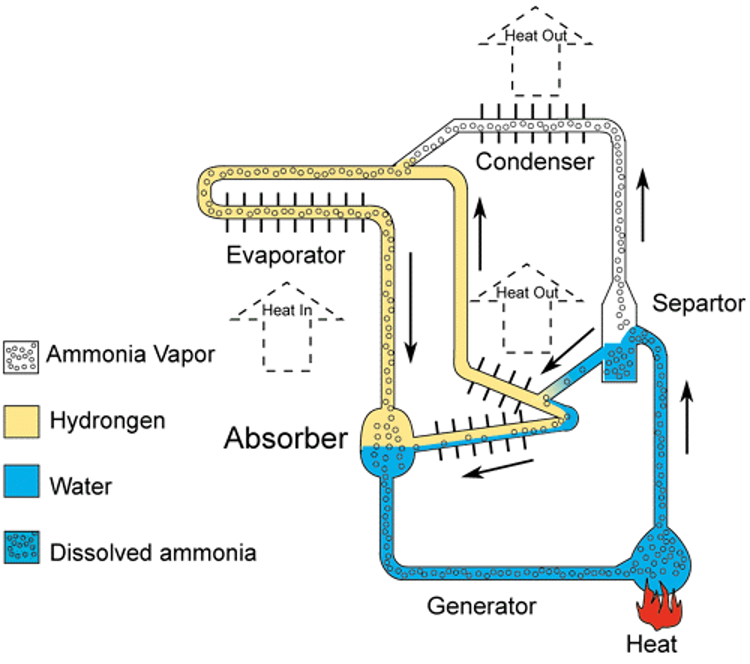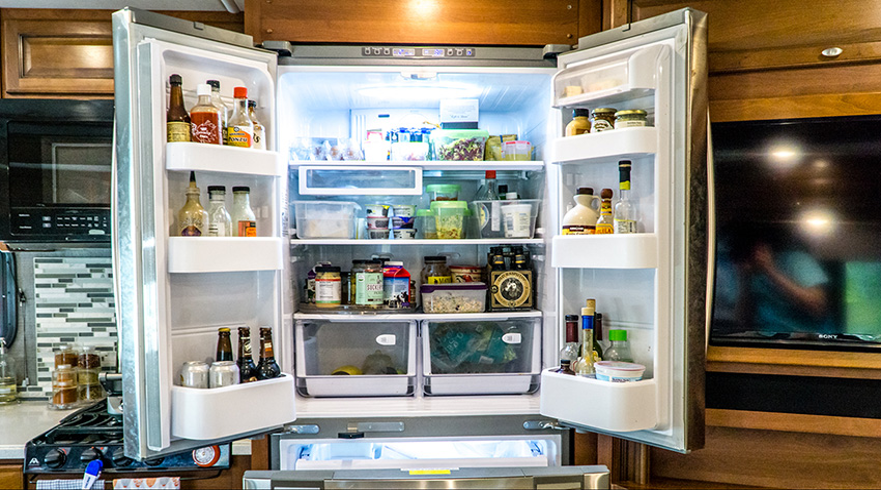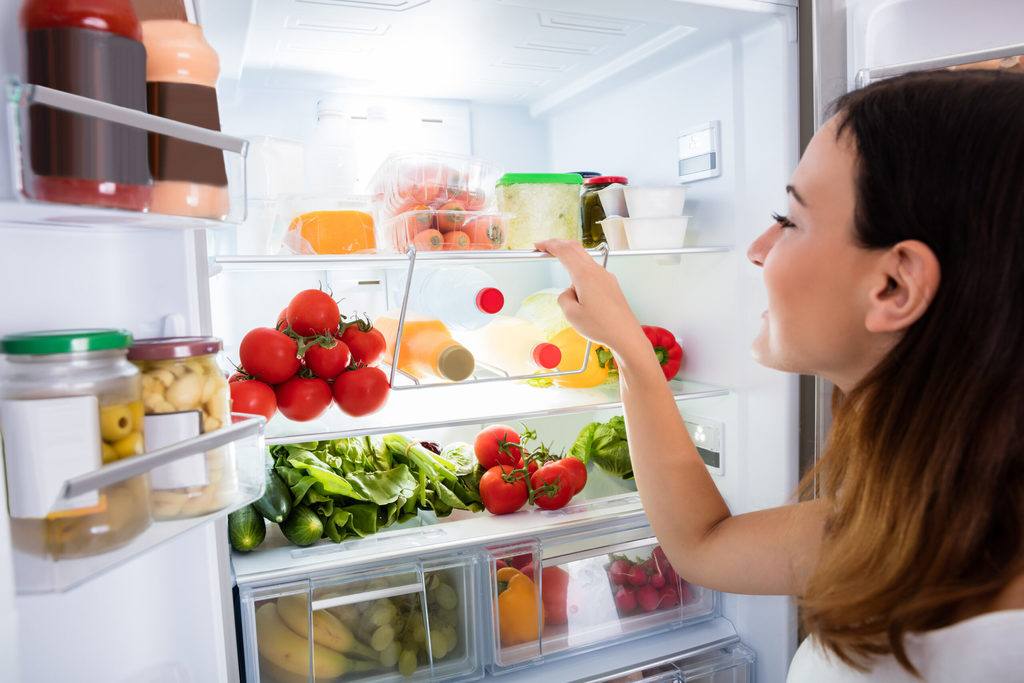
The last thing you want while traveling is for your RV refrigerator to break down. Even stranger is the fact that the refrigerator is broken, but the freezer is in good working order.
Simply said, the liquid that provides cooling, known as refrigerant, first travels to the freezer before moving on to the refrigerator. Therefore, the refrigerator will suffer first if the cooling ability of your refrigerator is impaired. And sure, the refrigerant does rotate more as the road becomes bouncier and more curved. To stop the refrigerant from clogging the system, make sure your RV travels as smooth as possible. This might necessitate expensive repairs.
The good news is that you can troubleshoot your fridge without having to be an expert in everything related to refrigerators. Continue reading to learn the typical causes of this specific fault and how to solve it in popular RV fridge models.
How to Repair an RV Refrigerator That Isn’t Cooling

The refrigerators used in RVs are not the same as those seen in regular homes. It may take the RV refrigerator up to 24 hours to begin cooling once it has been turned on. In order to offer to cool, an RV refrigerator tends to absorb heat, and if it cannot locate a source of heating, it will rapidly heat up to an intolerable degree.
The following is a list of things that you should think about in order to fix the problem with your RV refrigerator not cooling:
- Give it some time so that the ice can melt entirely if there is a lot of it stacked up in the refrigerator.
- Check to see that the seals on the refrigerator door are functioning properly.
- If you could also check the pressure of the propane using a manometer, it would be helpful.
- Be sure to check the airflow on the top and bottom sections of the outside. It is imperative that the circulation through the upper vent of the refrigerator be unimpeded if you do not want the heat to build up.
- To clean the burner, you should follow the instructions in the manual that came with your Domestic refrigerator.
- Turning off the Climate Control option will help you assess whether this makes a difference.
Common Reasons Behind RV Refrigerators Not Cooling Properly

Topography That Is Not Even
Everyone is aware that ammonia has a higher density than water, which is the reason why it moves at a velocity that is slower than water moves. Therefore, it is imperative that you take the necessary precautions to ensure that it reaches the chamber in a timely manner and without encountering any obstacles, which is next to impossible if you are driving on uneven terrain.
It is also a significant reason why the freezer in your RV works, even though the refrigerator does not. The uneven surface causes a disruption in the proportion of the mixture that is burned, which, consequently, causes the RV refrigerator’s cooling capacities to be compromised.
Problems with the Thermistor
The thermistor is one of the essential components that are responsible for the significant contribution that it makes to the operation of an RV refrigerator. If the temperature of the environment continues to rise, these thermistors will lose some of their ability to cool.
Because of this, there will be an excessive flow of the heated mixture, which will cause the temperature inside the freezer to drop to very low levels, but the temperature inside the refrigerator will rise to very high levels.
If the RV refrigerator is not cooling, but the freezer is properly, and the problem is caused by the Thermistor, the easiest approach to remedy the problem is to unplug the Thermistor and purchase a new one. The performance of the RV refrigerator will improve as a result of this process, and there will be no interference with temperature regulation.
Temperature Sensors
The temperature sensor is another factor that might contribute to difficulties with RV refrigerators not cooling, but the freezer is. They can shift, slip, and even fall off their position if they are only lightly attached.
Check to see that the sensor is attached to the fin in the right way. Moving the sensor back and forth allows you to fine-tune the temperature of the refrigerator after it has been properly installed.
Evaporator Coils That Have Frozen Over
When the air needs to be cooled, it is directed to the evaporator coils. However, if they are covered in frost, the air will not be able to move through them efficiently, and the refrigerator will not get as cold as it should. This will result in a warm refrigerator. Using a hairdryer to remove the frost from the coils is a simple solution that will alleviate the problem in the short term. However, in order to prevent the ice over from occurring again in the future, you will need to identify the underlying cause of the problem.
Your evaporator coils might freeze for several different reasons; however, one of the most typical causes is that the defrost heater component is not functioning properly. Alternately, the heater itself can be in fine shape, but the defrost thermostat might be broken, preventing it from sending the correct signal to the heater to activate when necessary.
Conclusion
There is a possibility that there is nothing wrong with the refrigerator that is in your RV. It is common practice to forget that the lights, fans, and other electrical appliances in your RV are turned on, which causes the electrical load to increase gradually.
If the pressure is allowed to build up to an unsafe level, it will obstruct the flow of electricity to the refrigerator, which will cause it to stop producing chilled air.
Because the refrigerator is the second appliance to receive its portion of the electrical power, the amount of energy that is left over for the freezer is already limited, to begin with.
As a direct result of this, the freezer maintains a lower temperature than the refrigeration chamber. It’s not like the refrigeration chamber won’t get cold, but the process will take a lot longer than the freezing chamber did.
Frequently Asked Questions
Does The Amount of Airflow into The RV Refrigerator Affect Its Ability to Cool?
Yes, ventilation does have a significant role in the cooling capacity of your RV refrigerator. For it to generate the cooling that it should be producing, it needs enough airflow. If the refrigerator in your RV is not producing cold air, you need to pay attention to the airflow to ensure that it is receiving enough amount of airflow.
What Are the Most Common Reasons for RV Refrigerators to Lose Their Ability to Cool the Interior?
Even when the refrigerator in your RV isn’t working for whatever reason, at least the freezer is functional. It’s possible that it’s due to the clogged exhaust of the refrigerator, issues with the temperature sensors or air circulation, thermistor problems, or the fact that you’re driving on uneven and rough surfaces.
What Steps Should I Take If My RV Refrigerator Is Not Cooling, but Freezer Is?
If the problem cannot be solved with a simple solution, you should take all the food out of it and then call an expert to help you solve the problem.

